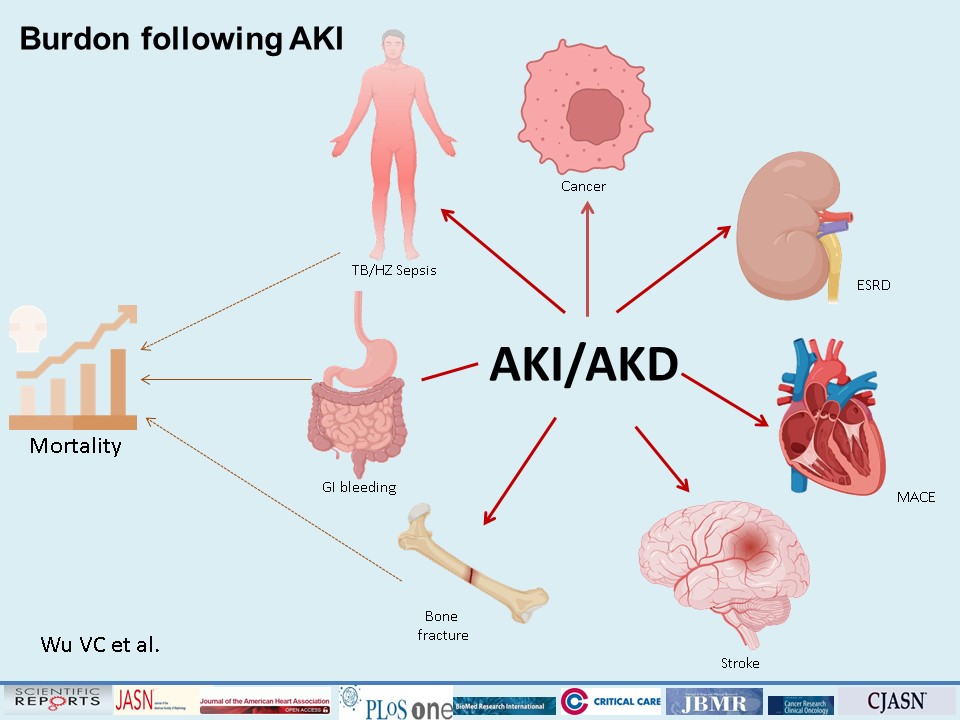Submission No. : AKI1-0001
Session Title : Acute Kidney Injury 1
Session Topic : Comprehensive Insights into AKI Management
Date & Time, Place : June 14 (Fri) / 08:30-10:00 / Room 1 (GBR 101 - 102)
Progression from AKD or AKI to CKD: Mechanisms and Clinical Implications
Vin-Cent Wu
National Taiwan University Hospital, Taiwan
Traditional acute kidney injury (AKI) classifications, centered around semi-anatomical lines, no longer suffice in capturing the complexity of AKI. Subphenotyping, enriched with AKI biomarkers, holds insights into distinct risk profiles and tailored treatment strategies, redefining AKI and contributing to improved clinical management (Critical Care). Incorporating kidney biomarkers into strategies for early AKI detection and the initiation of AKI care bundles has shown greater effectiveness than using care bundles without these novel biomarkers. Our investigations have made notable advancements in identifying water-soluble regulatory iron hepcidin as a promising early biomarker for predicting postoperative acute kidney injury. Beyond hepcidin, our research extended into the exploration of predictive biomarkers, such as HJV, NGAL, and cFGF-23, uncovering their potential in prognosticating the occurrence and severity of AKI (Cell Death Dis, Antioxidants & redox signaling). The amalgamation of these biomarkers with existing clinical AKI scores holds immense promise in revolutionizing critical care and ushering in a new era of personalized patient management. Moreover, our endeavors have transcended theoretical advancements, with successful patent acquisition for AKI biomarkers attesting to our commitment. We were the inaugural contributors to the discourse on the effects of indoxyl sulfate on the tubulogenesis capability of endothelial progenitor cells and cell aging in acute kidney injury(Angiogenesis). A comprehensive review of the long-term prognosis of acute kidney injury, encompassing impacts on the heart, brain, bone lesions, gastrointestinal, and tissue carcinogenesis, was presented. (JASN, KI, cJASN, JAHA, ICM, CC). Our team posited that transferring post-AKI patients to nephrologists for care could reduce overall mortality and cardiovascular events (Value in Health).
Keywords: AKI, AKD, CKD, ESKD
2024AKDcare.jpg
